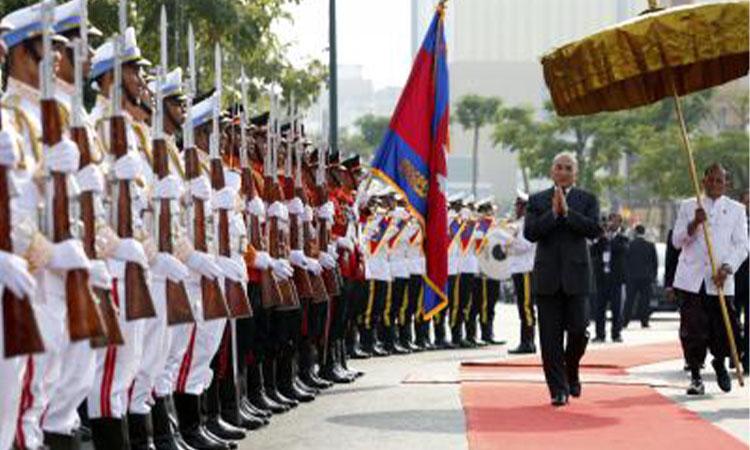Cambodia celebrated a traditional royal ploughing ceremony on Monday after a four-year hiatus due to the Covid-19 pandemic.
The event was to mark the annual beginning of the farming season, and royal oxen were used to plough and predict agricultural yields and weather in the year, Xinhua news agency reported.
Cambodia's King Norodom Sihamoni presided over the elaborate ceremony held in central Kampong Thom province's Kampong Svay district, attracting thousands of local visitors.
At the event, King Sihamoni assigned Kampong Thom Provincial Governor Nguon Ratanak as the King of the ploughing ceremony and the Governor's wife, Hong Phanny, as the Queen of the sowing ceremony.
The assigned King ploughed the rice field by using royal oxen and the designated Queen sowed seeds on the furrow as the symbol of planting.
Also Read | Taliban government reaches out to India, embassy to train Afghan diplomats in Kabul
After three rounds of ploughing across the field, the oxen were offered seven plates of food: rice, corn, green bean, sesame, water, fresh-cut grass, and wine.
The oxen had rice, corn, and green bean, and a court soothsayer predicted that the three kinds of crops would give high yields this year.
"The royal oxen ate 95 per cent of rice, corn, and green bean," Kang Keng, chief of the soothsayers at the Royal Palace, said.
"This is just a prediction based on the custom of the royal ploughing ceremony that has existed since an ancient time," he added.
"This ceremony is also to announce that the agricultural season has come."
As an agrarian country with a population of 16 million, agriculture created 3.12 million jobs and contributed about 24 per cent to the kingdom's economy, according to the Ministry of Agriculture, Forestry, and Fisheries.


















